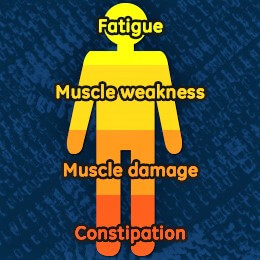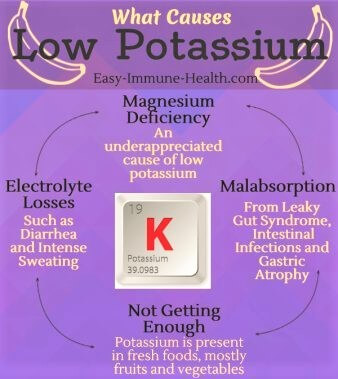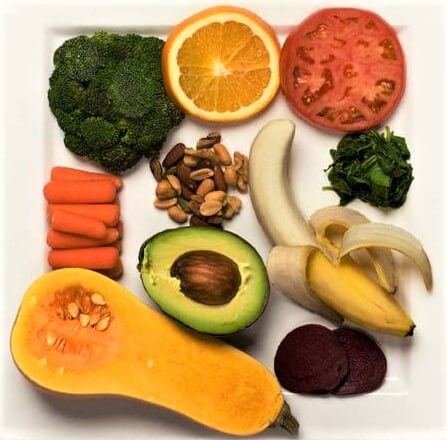If you are often feel signs of tired or weakness followed by swelling of the ankles and hands, probably that might be from potassium deficiency. Bellow in this article we will show you, which are the causes and how to avoid potassium deficiency.
What is Potassium Deficiency?
Potassium is a mineral that is found in a variety of different foods. It is also an electrolyte, meaning that it assists in conducting the electrical charges in our body that contract our muscles, which is basically what allows us to move our bodies at all.
Most of the potassium in our body can be found inside the cells. However, small changes to the amount of potassium that is outside the cells can have a huge impact on the function of our heart, nerves and muscles.
Symptoms of Potassium Deficiency

Symptoms of low potassium can often go unnoticed as sometimes they are too mild to be very noticeable and other times they can be confused with symptoms of a separate condition.
Potassium deficiency most often has an effect on the gastrointestinal tract, kidneys, muscles, heart and nerves as it is required for the proper function of these bodily systems. Symptoms of these effects include:
- Weakness, tiredness or cramping in arm or leg muscles, can range from mild to so severe that it can feel like paralysis
- Tingling or numbness
- Nausea or vomiting
- Stomach cramps and bloating
- Constipation
- Irregular heart beat
- Fainting, usually caused by low blood pressure
- Abnormal behavior and physiological conditions such as depression, psychosis, delirium, confusion or hallucinations
- Swelling of the face, feet, ankles and abdomen
Although many of these symptoms can be due to factors other than potassium deficiency, if you are having severe muscle cramps, are feeling faint or are experiencing an irregular heartbeat it is advised that you seek medical attention immediately.
Causes of Potassium Deficiency
Although the most common cause of potassium deficiency is not eating a well-balanced diet, there are a variety of other factors that could put you at risk of developing this condition.
Excessive sweating, diarrhea and general dehydration are a major cause of potassium deficiency, as you lose this vital mineral along with the moisture that leaves your body. This is why professional athletes often consume drinks high in electrolytes after hard workouts where they sweat excessively.
Certain medicines are also known to cause potassium deficiency, such as diuretics. This is mainly because they promote the release of fluid from the body.
Although lack of bodily fluid is an important factor when it comes to potassium deficiency, most people don’t get enough because of their diets. Potassium is a mineral that is only available to us through food products, as the body cannot naturally product it on its own, making it incredibly important to make sure you consume foods that are rich in it.

Read also: Effective Natural Remedy Which Can Treat Joint and Knee Pain
How to Avoid Potassium Deficiency

The best way to make sure that you are always potassium efficient is to consume a diet that is rich in potassium. Thankfully, it just so happens that the foods highest in potassium are also great for your overall health. Here are some of the foods that are highest in potassium:
- Kidney beans (600 mg of potassium per 3/4 cup)
- Sweet potato (500 mg of potassium per 1/2 cup)
- Chard (510 mg of potassium per 1/2 cup)
- Halibut (430 mg of potassium per 75 grams)
- Banana (420 mg of potassium per medium sized banana)
The average recommended daily intake of potassium for an adult is a bit less than 5000 grams. Thankfully, there are many different potassium-rich foods that you can eat at every meal. To find out more about the different kinds of potassium-rich foods there are and how much you need, click here .
 Freshsein
Freshsein